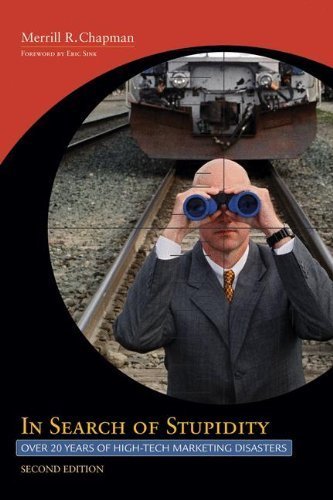What do you think?
Rate this book


In Search of Stupidity: Over Twenty Years of High-Tech Marketing Disasters, Second Edition is National Lampoon meets Peter Drucker. It's a funny and well-written business book that takes a look at some of the most influential marketing and business philosophies of the last twenty years. Through the dark glass of hindsight, it provides an educational and entertaining look at why these philosophies didn�t work for many of the country's largest and best-known high-tech companies.
Marketing wizard Richard Chapman takes you on a hilarious ride in this book, which is richly illustrated with cartoons and reproductions of many of the actual campaigns used at the time. Filled with personal anecdotes spanning Chapman's remarkable career (he was present at many now-famous meetings and events), In Search of Stupidity, Second Edition examines the best of the worst marketing ideas and business decisions in the last 20 years of the technology industry.
This second edition includes new chapters on Google and on how to avoid stupidity, plus the extensive analyses of all chapters from the first edition. You�ll want to get a copy because it:
Features an interesting preface and interview with Joel Spolsky of "Joel on Software" Offers practical advice on avoiding PR disaster Features actual pictures of some of the worst PR and marketing material ever created Is highly readable and funny Includes theme-based cartoons for every chapter412 pages, Kindle Edition
First published January 1, 2003